The stage was set.
Ukrainian President Volodymyr Zelensky had received an ultimatum from the Trump administration. He was negotiating to sit for an interview with CNN host Fareed Zakaria. And Zelensky was prepared to do it: The President of Ukraine would go on international television and announce investigations into President Donald Trump’s domestic political opponent.
And then, Zelensky didn’t do it.
Over the course of a few nail-biting days in early September, Trump nearly obtained the “deliverable” he had sought from Ukraine for months. He’d wanted Zelensky to publicly announce investigations into Joe and Hunter Biden and purported Ukrainian meddling in the 2016 U.S. elections — perfect fodder for Trump’s 2020 reelection campaign.
The President had placed a hold on a nearly $400 million aid package to Ukraine, and the Ukrainians were feeling the heat.
The date for the announcement was reportedly set for Sept. 13. But just before Zelensky went public, the security aid was released — and the public learned of a whistleblower’s complaint that would come to rock Washington and endanger Trump’s hold on the Oval Office.
A look at the chronology reveals just how close Trump came to extracting what he wanted from Ukraine’s president.
‘USED AS A PAWN’
Zelensky’s April election, and the parliamentary majority his party won in July, had catapulted him onto the world stage.
Zakaria, for his part, has claimed ignorance of the announcement Zelensky was set to make.
“We’d been trying to get an interview with President Zelensky pretty much since he got elected,” Zakaria recalled Wednesday. “They had been encouraging, and we were negotiating back-and-forth.”
But over and over behind the scenes, Americans acting pursuant to Trump’s push for investigations were leaning on the Ukrainians, and the country’s new leadership felt it.
On July 10, EU Ambassador Gordon Sondland told Ukrainian officials that Zelensky would get a coveted face-to-face meeting with Trump if the country pursued the White House’s desired investigations.
A week later, on July 18, several administration officials heard for the first time that Trump had instructed his budget office to place a hold on a $391 million aid package that Congress had approved for Ukraine.
The pressure built on the Ukrainians. But they resisted. The Ukrainian national security adviser told Acting Ukraine Ambassador Bill Taylor on July 20 that Zelensky “did not want to be used as a pawn in a U.S. re-election campaign,” Taylor later testified.
Also in late July, the anonymous whistleblower penned a complaint that would eventually make its way to into the public record. As the whistleblower’s concerns climbed the bureaucratic ladder, it wasn’t long before the White House heard about them.
But Trump, his personal lawyer Rudy Giuliani, Sondland and others kept pushing Ukrainian officials, including Zelensky himself.
On Aug. 12, an aide to Zelensky offered a generic anti-corruption statement to the American officials pushing for an announcement, who showed it to Giuliani. The former New York mayor “did not find that convincing” because it didn’t mention the specific probes Trump wanted, then-U.S. special envoy to Ukraine Kurt Volker later testified.
So Volker sent back an amended proposal specifically mentioning the specific probes — the Ukrainians refused.
‘NEED TO TALK WITH YOU’
The pressure campaign, at this point, intensified: Politico, in an Aug. 29 article, revealed publicly that the nine-figure aid package Congress approved for Ukraine had been held up for months.
“Need to talk with you,” Andrey Yermak, an aide to Zelensky, texted Volker in response to the story. Taylor testified later that he began receiving “desperate” calls from Ukrainian officials worried about the money. By law, if the money wasn’t spent by Sept. 30, it would be lost forever — a deadline of which Zelensky was painfully aware.
But the pressure campaign continued. And now, the aid money was explicitly involved.
“I said that resumption of the U.S. aid would likely not occur until Ukraine provided the public anticorruption statement that we had been discussing for many weeks,” Sondland said in an amendment to his sworn testimony, recalling a conversation with Yermak on Sept. 1
“Everything” was dependent on Ukraine publicly announcing investigations, Taylor recalled Sondland telling him on the phone. And Trump “wanted President Zelensky in a public box by making a public statement about ordering such investigations,” he recalled Sondland saying.
Taylor expressed his concerns to Sondland about such an ultimatum and suggested Sondland try to change Trump’s mind. But Trump reportedly refused to give up the push.
Sondland told Zelensky and Yermak on Sept. 8 that the military aid would be at a “stalemate” unless Zelensky agrees to a public statement, Taylor testified that Sondland told him.
“Ambassador Sondland said that this conversation concluded with President Zelensky agreeing to make a public statement in an interview on CNN,” Taylor recalled Wednesday.
Indeed, the interview seemed inevitable, based on texts the diplomats exchanged at the time.
“The nightmare is they give the interview and don’t get the security assistance,” Taylor texted Volker. “The Russians love it. (And I quit.)” The next day, he referenced an “interview” again with Sondland: “Counting on you to be right about this interview, Gordon.”
“I never said I was ‘right,’” Sondland replied. “I saw we are where we are and I believe we have identified the best pathway forward.”
As the pressure on Ukraine intensified, so too did interview negotiations with Zakaria.
“Things picked up around August and September, I went to Kiev to meet with him,” Zakaria recalled later, referring to Zelensky. “It seemed it was confirmed. And then it fell apart.”
‘AND THEN IT FELL APART’
On Sept. 9, the White House pressure campaign on Ukraine met a severe obstacle: Congress.
The intelligence community’s inspector general notified Intelligence Committee Chairman Adam Schiff (D-CA) that acting Director of National Intelligence Joseph Maguire was withholding a “credible” whistleblower’s complaint.
Schiff wrote to Maguire demanding the complaint. But Maguire provided nothing — later, he testified that he approached the White House after receiving the complaint, and that the White House said the phone call between Trump and Zelensky described in it was subject to executive privilege.
Also on Sept 9th, three congressional committees launched an investigation into whether Giuliani strong-armed Ukraine “to assist the President’s reelection campaign.”
Then, everything changed.
On Sept. 11, The White House released the $391 million aid package to Ukraine, news of which spread worldwide the next day.
Taylor testified that he immediately informed Zelensky and Ukrainian Foreign Minister Vadym Prystaiko. And he reminded Yermak, he testified, of “the importance of not getting involved in other countries’ elections.”
But he’d heard from Sondland that Zelensky had already agreed to a CNN interview, in which the Ukrainian president would make an announcement regarding the investigations.
Zakaria, in fact, had traveled to Ukraine on Sept. 12 and 13 and met with Zelensky for a pre-interview discussion. “We had a very nice conversation, no inkling of any of this,” he said.
While he initially confirmed with Prystaiko on September 12 that the interview was off, Taylor said, “I noticed during a meeting on the morning of September 13, at President Zelensky’s office, that Mr. Yermak looked uncomfortable in response to the question.”
Then, on Sept. 13 Schiff announced publicly that Maguire was withholding a whistleblower’s complaint.
The interview was “set,” Zakaria recalled, until it wasn’t. Looking back, he said, the release of the aid and the revelation of a whistleblower complaint appeared to have been responsible for the cancellation.
“The aid is released, so that’s the end of the quid, and then the interview is cancelled, that’s the end of the quo,” he said, adding later: “So it is possible to conclude that they realized this story was now public, the aid had been released, they didn’t need to do the interview.”
Clarification: The post has been edited to clarify the circumstances of the proposed statement prepared for Zelensky.





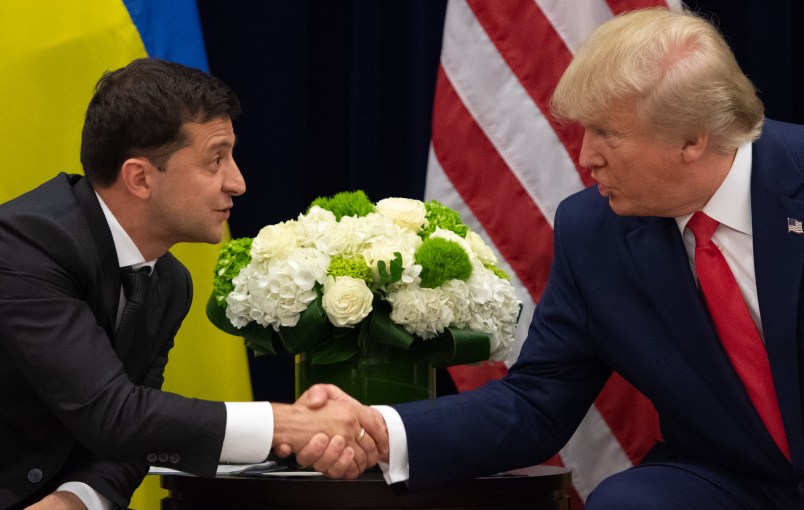

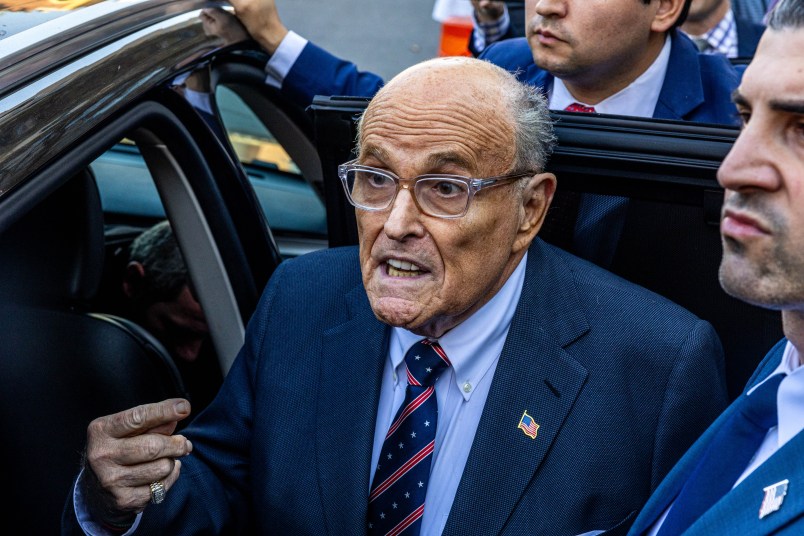
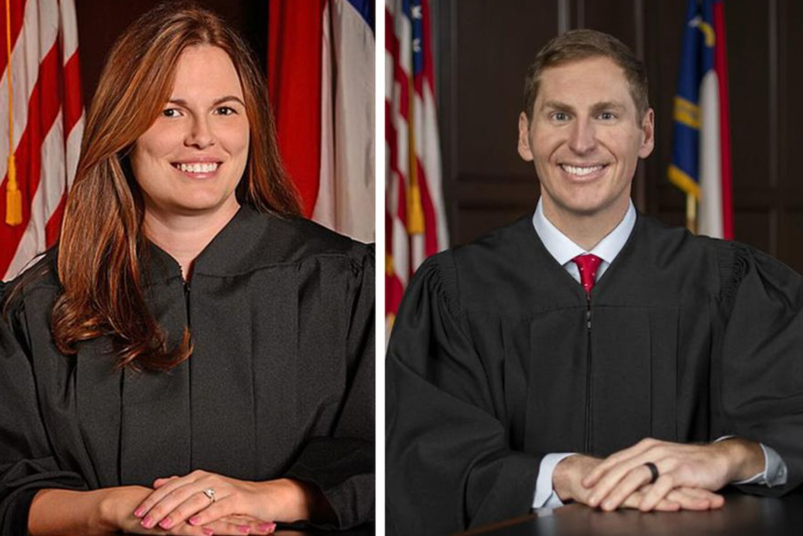
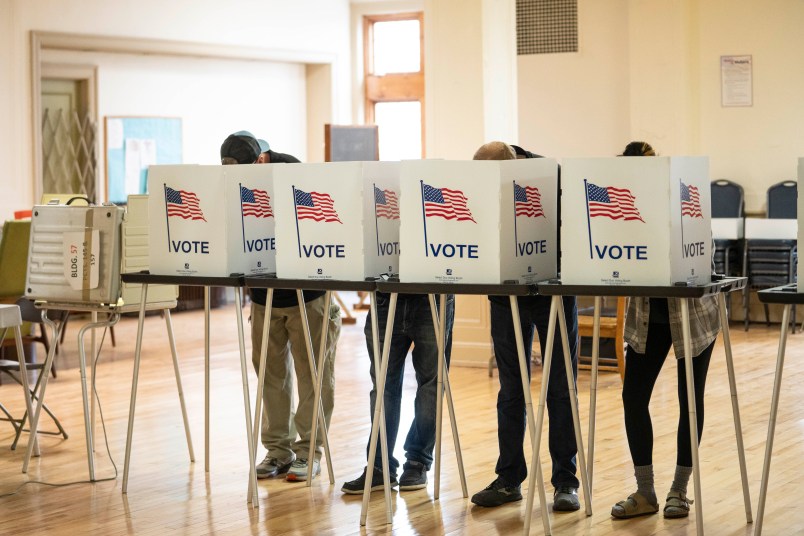
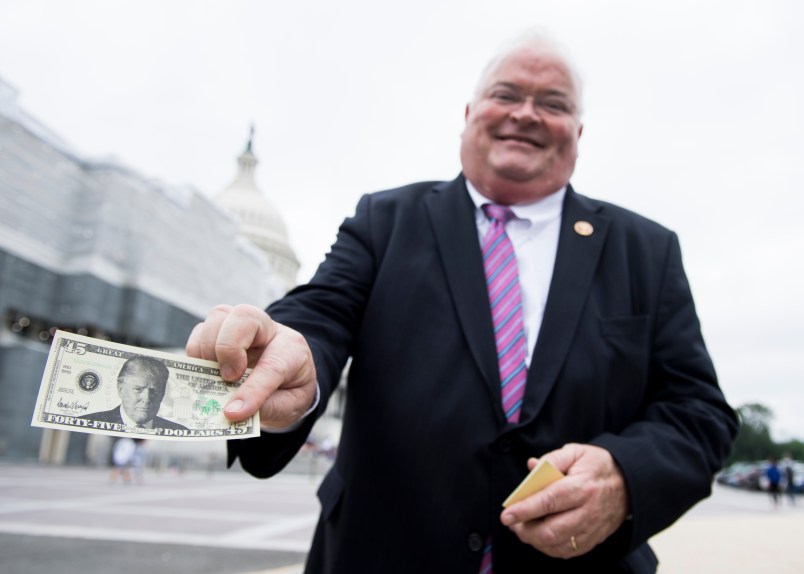
Damn … that whistle blower really fucked things up.
We may never really be able to appreciate the service the whistleblower did for democracy.
Saved by the proverbial hair. Makes my stomach roll over thinking how close it all was.
Nicely set out timeline of events. Good job @mattshuham.
Meddling kids!
And with that relations between Ukraine’s president and the USA are destroyed as they now know the USA is more corrupt then their previous government. Thanks GOP